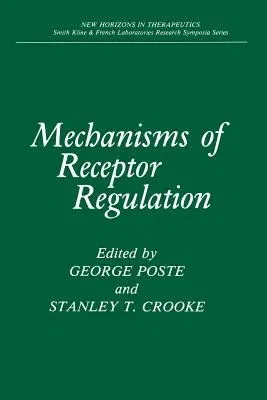Mechanisms of Receptor Regulation (1985)Paperback - 1985, 1 October 2011

Qty
1
Turbo
Ships in 2 - 3 days
In Stock
Free Delivery
Cash on Delivery
15 Days
Free Returns
Secure Checkout
Part of Series
New Horizons in Therapeutics
Print Length
458 pages
Language
English
Publisher
Springer
Date Published
1 Oct 2011
ISBN-10
146129259X
ISBN-13
9781461292593
Description
Product Details
Book Edition:
1985
Book Format:
Paperback
Country of Origin:
NL
Date Published:
1 October 2011
Dimensions:
22.86 x
15.24 x
2.39 cm
ISBN-10:
146129259X
ISBN-13:
9781461292593
Language:
English
Location:
New York, NY
Pages:
458
Publisher:
Series:
Weight:
616.89 gm

